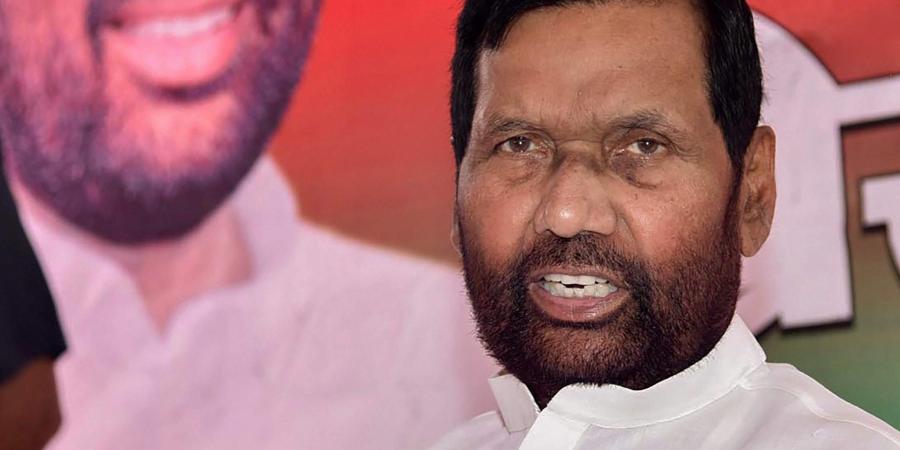In four Assembly polls in 20 years, LJP’s winning percentage has been barely 9%.
New Delhi: Since its split from the Janata Dal United (JDU) in November 2000, the Ram Vilas Paswan-led Lok Janshakti Party (LJP) has contested four Assembly elections in Bihar (February 2005, October 2005, October 2010 and October 2015).
In these four elections, it has won only 44 seats of the total 498 seats that it has contested across the 20 years of its existence, which means that its winning percentage is barely 9%.
In February 2005, it contested 178 seats, winning on 29. A few months later, in the October polls, it contested on 203 seats, but could only win on 10 seats. In the 2010 polls, it won three of the 75 seats that it had contested, while the number further decreased to two seats in 2015, in an election where it had contested on 42 seats in an alliance along with the BJP.
In terms of vote share, too, its performance has not been encouraging. In the February 2005 elections, it had got 12.62% of the total votes polled, which came down to 11.10% in October 2005. The vote share of LJP further decreased to 6.75% in the 2010 polls. In the last elections, where the party contested on 42 seats but could only win on two seats, it got only 4.8% of the total votes polled.
However, despite this repeated poor performance at the hustings, the Paswans (all the main functionaries of the party, including the six Lok Sabha MPs, are from the family of Ram Vilas Paswan) have been able to stay in power both at the Centre and the state.
Political observers, who have been following the political journey of Paswan, say that this has been made possible because of the “aura” that Ram Vilas Paswan—something which his son, Chirag Paswan, too is trying to emulate—has created regarding the family and the party being the sole voice of the 5% Paswan population of the total 16% Schedule Caste population in the state.
“First, the Congress-led UPA and now the BJP-led NDA has been made to believe by Paswan that both these alliances need him if they want to get the Dalit votes, specially the Paswan votes of Bihar. However, if one closely looks at the numbers that the Bihar Assembly elections have thrown up, it will become clear that the LJP’s claim of being the sole representative of the Dalits is exaggerated. Their vote share has been going down continuously. However, for 20 years now, they have been able to convince the strategists of Congress and the BJP about their mythical power to attract the Dalit votes,” a Patna-based political journalist said.
The “over-importance” to LJP, as a Patna-based senior BJP functionary termed it, has also not gone down well with the party workers and functionaries who work on the ground.
“We do not share a very cordial relation with them as we know that they are where they are due to our hard work and the image of Prime Minister Narendra Modi. On the other hand, we are still doing their chores. The senior party leaders, for reasons best known to them, give over-importance to the Paswans and the LJP. Their electoral clout will be unveiled once they decide to contest the elections alone,” he said.
It is pertinent to mention that in January 2014, the Central Bureau of Investigation (CBI) had registered two cases related to alleged irregularities in the appointments in the middle and junior management levels in the Bokaro steel plant in 2008 in which a former Executive Director of the plant was also named as the accused. When the alleged irregularities had taken place, Paswan was Union minister for chemicals, fertilizers and steel during the UPA government between May 2004 and May 2009. The CBI’s contention, at that time, was that such a large number of appointments at crucial posts could not have happened without the approval of the top authorities and individuals.
The CBI after questioning Paswan’s personal staff, was about to question him, but the questioning was postponed due to the May 2014 general elections. However, before that could happen, Paswan, sensing the pro-Modi mood, joined the NDA alleging “humiliation” by the Congress. The same Paswan had left the NDA in 2002 due to the alleged role of BJP leaders in the Gujarat riots.

